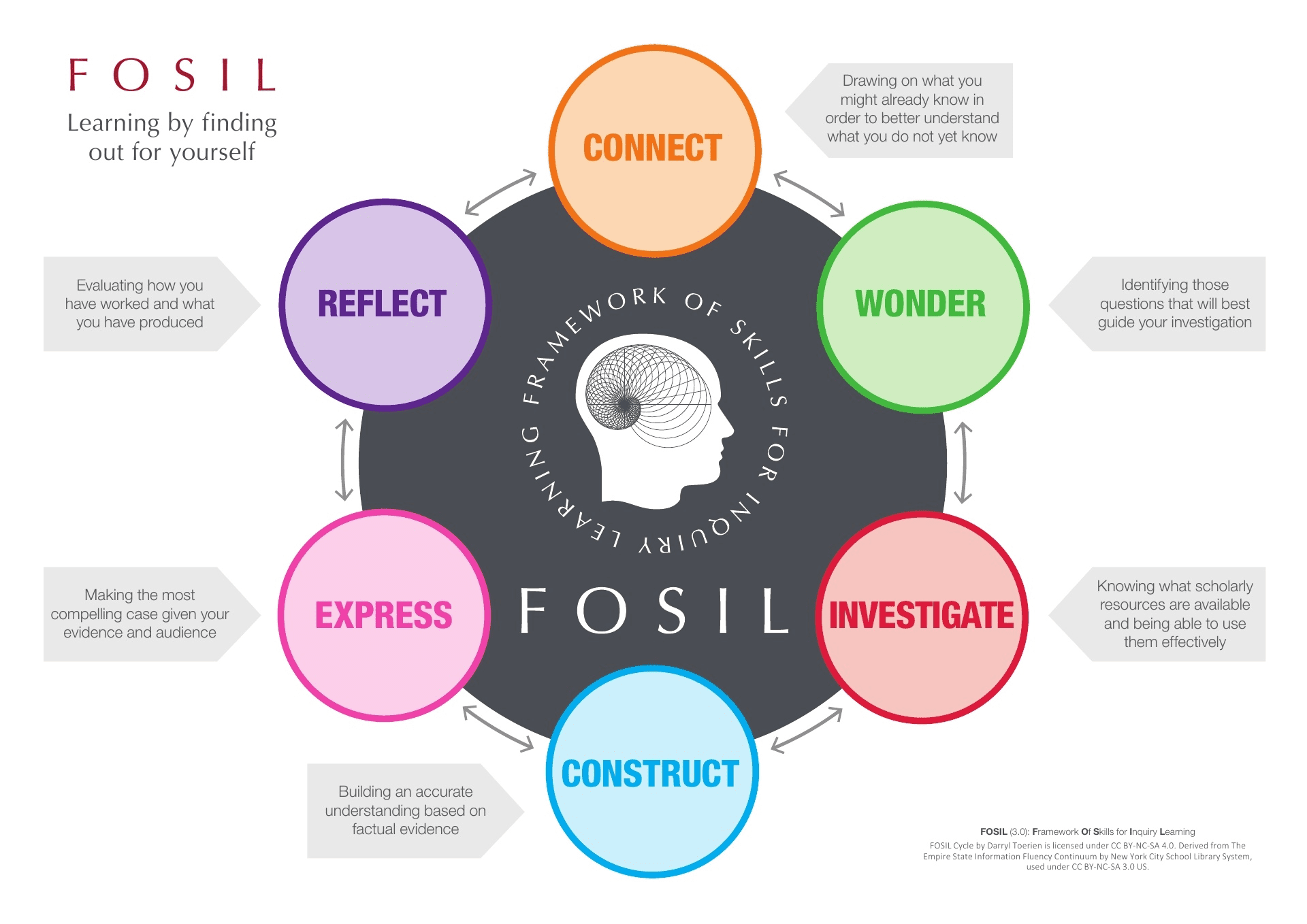Yes.
FOSIL stands for Framework Of Skills for Inquiry Learning, which it basically is.
However, the fact that it also sounds like fossil is deliberate. Firstly, the discipline of archaeology is a helpful way to think and talk about inquiry – as the process of carefully and thoughtfully uncovering something – especially with children. Secondly, it serves as a warning against complacency, because a framework, or progression, of inquiry skills must evolve in response to changes in the environment if it is to remain vital rather than become fossilised.*
This idea is reflected in the FOSIL logo/ head (see below), which is suggestive not only of an ammonite fossil, but also of inquiry as being an iterative process that, while centrally cognitive, unfolds to involve us fully as social human beings. Placing the FOSIL head/ inquirer at the centre of the FOSIL Inquiry Cycle is deliberate, then, and also makes it clear that reflection is central to and occurs throughout the dynamic inquiry process, and is not limited to the Reflect stage.

*The ESIFC framework of literacy, inquiry, critical thinking, and technology skills that students must develop at each phase of inquiry over their years of school and in the context of content area learning that undergirds FOSIL – first developed in 2009 – was re-imagined in 2019, again under the direction of Barbara Stripling, to adapt to the changing information, education, and technology environments, as well as the increasing diversity in student populations. Not only will this happen again to the ESIFC, but it must happen to a greater or lesser extent for each of us if FOSIL is to keep meeting the actual needs of our individual communities of inquiry.



